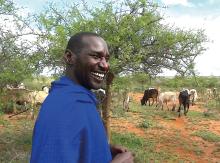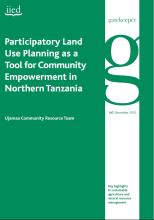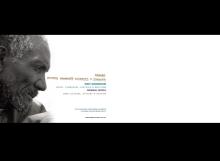Land Library
Bienvenue dans la bibliothèque du Land Portal. Explorez notre vaste collection de ressources en libre accès (plus de 74 000), comprenant des rapports, des articles scientifiques, des articles de recherche, des publications évaluées par des pairs, des documents juridiques, des vidéos et bien plus encore.
/ library resources
Showing items 1 through 9 of 9.Indigenous Peoples and local communities hold a large share of the world’s land area under customary systems. However, there is a tremendous gap between what is held by communities in practice and what is formally recognised by governments.
The year 2016 marks 15 years since the new wave land reforms became operational in Tanzania. Despite its ambitious goals – encouraging land registration and titling, and empowering women and other vulnerable groups – the results are disillusioning.
Communal lands are central to the livelihoods of many Tanzanians, particularly to pastoralists and hunter-gatherer groups. But a number of factors can undermine the security of these lands remaining ‘communal,’ in turn threatening the livelihoods of many people and cultures.
The first draft of the Tanzanian constitution incorporates many provisions that will improve the rights and interests of pastoralists, huntergatherers and women in these communities.
In northern Tanzania, new grassroots groups called Women’s Rights and Leadership Forums (WRLFs) are mobilizing women and men in pastoralist communities to promote and defend local land rights.
This chapter addresses issues related to securing access and rights to resources, and gaining benefits from the resource within the context of one community-based initiative in the village of Ololosokwan in Tanzania.
This paper presents several case studies to show how the Ujamaa Community Resource Team (UCRT) has been working within Tanzania’s legal and policy framework to support a diverse range of pastoralists, agro-pastoralists and hunter-gatherers, all of whom face fundamental threats from external appro
In many Asian, African, and South American nations, indigenous people are being driven from their homes: Government authorities are leasing hundreds of thousands of hectares of land belonging to indigenous people who only in the rarest of cases possess deeds to the land that are recognised by the
The Hadzabe community of the Yaida Valley requested UCRT to assist them to undertake a cultural mapping exercise.









